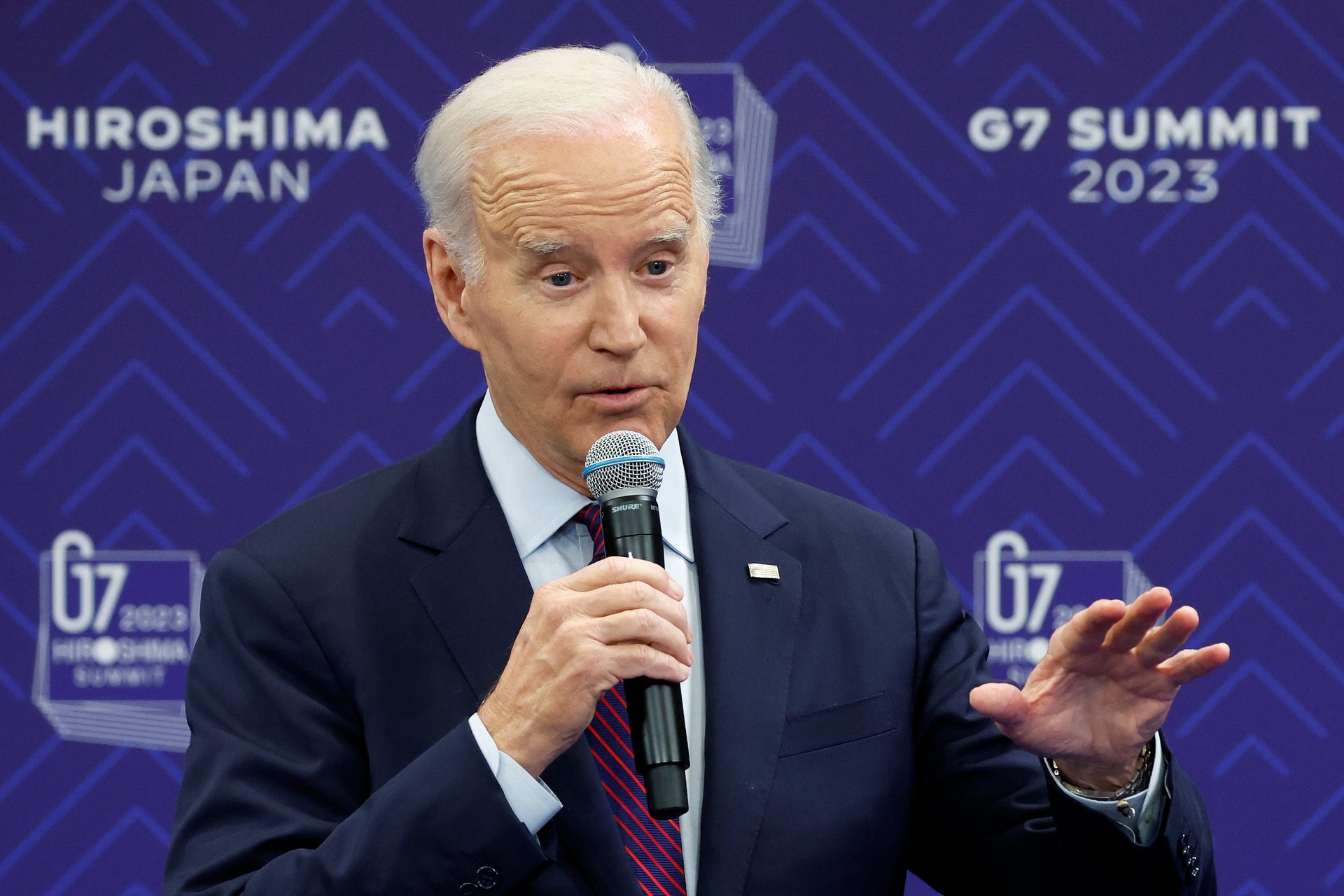How Joe Biden could end the debt crisis with the 14th Amendment
The 14th Amendment says that the US needs to make good on its debts

US president Joe Biden is due to resume talks today (May 22) with Kevin McCarthy, the Republican speaker of the House of Representatives, over raising the debt ceiling, an arbitrary limit on issuing new debt. A deal must be struck before the debt breaks the current ceiling of $31.4 trillion, a size it’s estimated to reach by June 1 at the earliest.
Without an agreement, House Republicans are prepared to let the US default, which could crater the domestic economy and hurt America’s credit rating for years to come. In exchange for raising the debt limit, Republicans want budgetary cuts and tougher work requirements on federal aid programs. While a deal would be the most politically palatable option, it’s not clear that Biden needs Republicans to solve this problem. The US Constitution may allow him to act unilaterally.
The 14th amendment simply reads, “The validity of the public debt of the United States…shall not be questioned.” In other words, since the US needs to be good for its debts, Biden could ignore the debt ceiling, keep borrowing, and test the ceiling’s constitutionality in court.
Earlier this month, Harvard constitutional law professor Laurence Tribe—who once opposed the 14th amendment option, saying that there was “no logical stopping point” for entrusting the president to avoid default—wrote in the New York Times that he changed his mind on the debt ceiling and now thinks it’s imperative for Biden to act.
“The question isn’t whether the president can tear up the debt limit… The question isn’t whether the president can in effect become a one-person Supreme Court, striking down laws passed by Congress,” Tribe wrote. “The right question is whether Congress—after passing the spending bills that created these debts in the first place—can invoke an arbitrary dollar limit to force the president and his administration to do its bidding.”
The answer to that question, Tribe wrote, is no.
Critics call the 14th amendment route an “illegal, foolish idea”
There are plenty of critics of the 14th amendment route.
Senate minority Leader Mitch McConnell called it an “illegal, foolish idea.”
Neil Bradley, the chief policy officer of the US Chamber of Commerce, a powerful business lobby, wrote that “attempting to invoke so-called ‘powers’ under the 14th amendment would be as economically calamitous as a default by a failure to lift the debt limit in a timely manner.” The Constitution granted Congress, not the president, the power to borrow money, he added.
What Biden thinks about the 14th amendment
Biden has publicly mused about the 14th amendment. “I think we have the authority,” he said recently. “The question is could it be done and invoked in time.” Treasury Secretary Janet Yellen has called the move “legally questionable” and warned of a “constitutional crisis.”
During the last debt crisis in 2011, former president Bill Clinton urged then-president Barack Obama to invoke the 14th amendment, but Obama said his lawyers were “not persuaded that this is a winning argument.”
An inevitable court battle
That’s all to say it’s a sure thing that unilateral action from Biden would trigger a court battle over these constitutional questions. And while the Supreme Court is currently controlled 6-to-3 by the political right, weighing in favor of Republicans would put the Court in a tough position. Cornell University law professor Michael Dorf told Politico the justices won’t want to be in the position to tank the global economy.
But as Biden said, he doesn’t exactly have time. 10 days isn’t enough time to win a court battle. When June 1 approaches, he may just have to keep borrowing in violation of the debt limit—and let the lawsuits start flying.